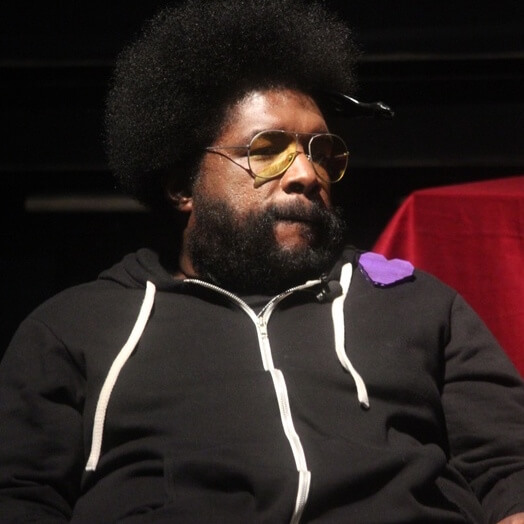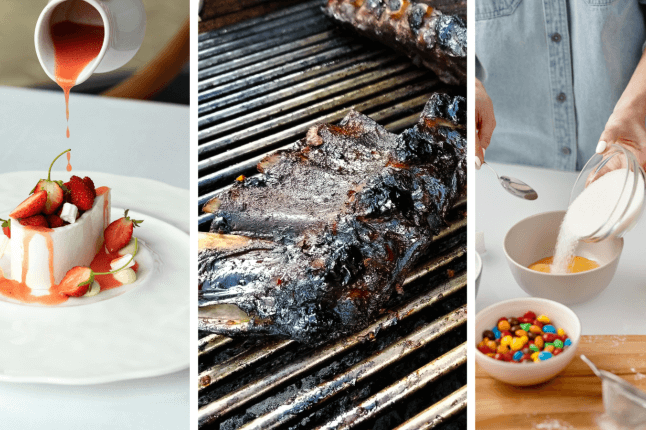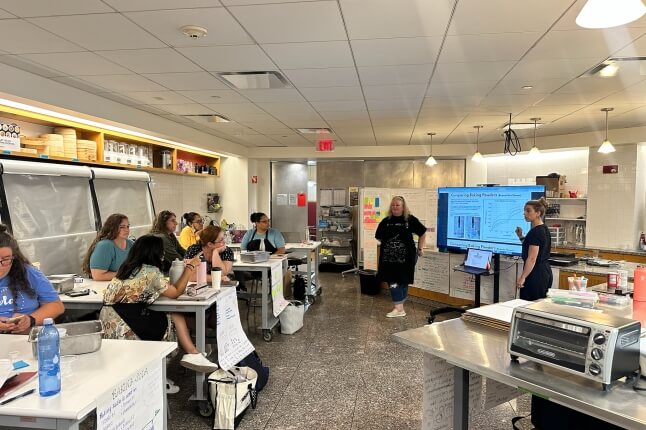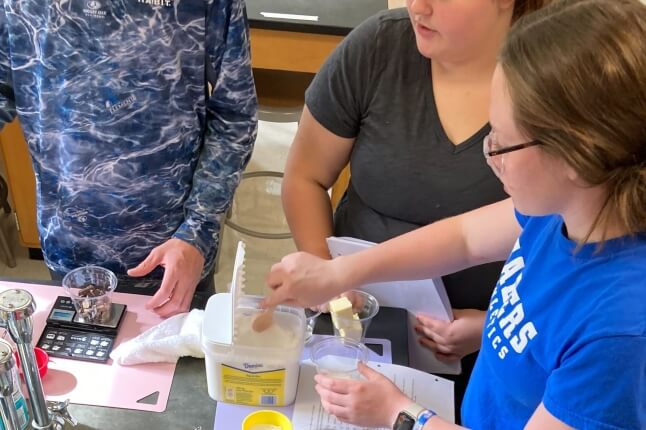News
Questlove, the bandleader for “The Tonight Show Starring Jimmy Fallon,” participates in a talk hosted by SEAS about creativity and innovative chefs. (Image courtesy of Lauren Sierra/The Harvard Crimson)
Has science destroyed the mystery of cooking? Could a computer replicate the intricacies of a complex dish or piece of music? When will laser knives be available to chefs?
These were some of the questions discussed at last night’s Science and Cooking lecture featuring Ahmir Thompson, better known as Questlove, a founding member of hip-hop and soul band The Roots, and renowned chefs Ludo Lefebvre and Daniel Patterson.
The event, sponsored by the Harvard John A. Paulson School of Engineering and Applied Sciences and moderated by author Ben Greenman, explored how science and technology have affected music and cooking.
“When I was beginning as a young chef in France, cooking wasn’t about science. It was simple,” said Lefebvre, who owns several restaurants in Los Angeles, including the foodie mecca Trois Mec. “Now, there is so much science in cooking. It’s very complicated. The new generation is all about science and chemistry and yet, many don’t know how to make a simple stock.”
But science is important to understand why some dishes work and others don’t, said Patterson, a James Beard award-winner.
“Music is basically math but no musician is thinking about math when they’re playing,” said Patterson. “Cooking is science but no cook is thinking about science while they’re cooking. But if you’ve made a mistake, you can go backwards and looking at the science and say, ‘ok what went wrong?’”
The same thing applies to DJ-ing, said Thompson, except instead of chemistry and thermodynamics, the science at play is psychology.
“I don’t DJ to play songs randomly,” he said. “I try to figure out the psychology of my audience. I DJ to study people’s minds.”
The musician and the chefs all grappled with the role technology plays – and should play – in their creativity.
Thompson, who is recording a new album with The Roots, said on one hand, technology makes creativity easier and more accessible.
“Right now, I’m tracking all drums for the new album on my iPhone,” Thompson said. “I’m putting my iPhone on the ground and trying to figure out new ways to record drums and get different textures and feelings. That’s something that couldn’t have happened before.”
On the other hand, Thompson said, there is so much music out there today, it’s easy to overlook a new sound.
“If a brilliant song falls in a forest, does it make a hit,” he asked.
Patterson warned against replying too much on technology in the kitchen.
“Technology can’t replace how you season food,” he said. “A computer can’t imitate our creative fingerprints, even though they might get all the ingredients right. A music set created by Questlove has his creative fingerprints. The bad part of technology is when people think it can do the work for them. It can’t. It can only help them if they have this spirit of giving and generosity and love that has to be part of the cooking process.”
The chefs also touched upon how global climate change is affecting cooking.
“Ingredients are getting more expensive and we are seeing less and less good quality fish,” said Lefebvre. “Living in L.A., you are surrounded by water yet there is no local fish. It’s very strange. It goes to show, we need to teach our kids how to eat and eat in a way that respects the planet.”
Topics: Cooking
Cutting-edge science delivered direct to your inbox.
Join the Harvard SEAS mailing list.
Press Contact
Leah Burrows | 617-496-1351 | lburrows@seas.harvard.edu



